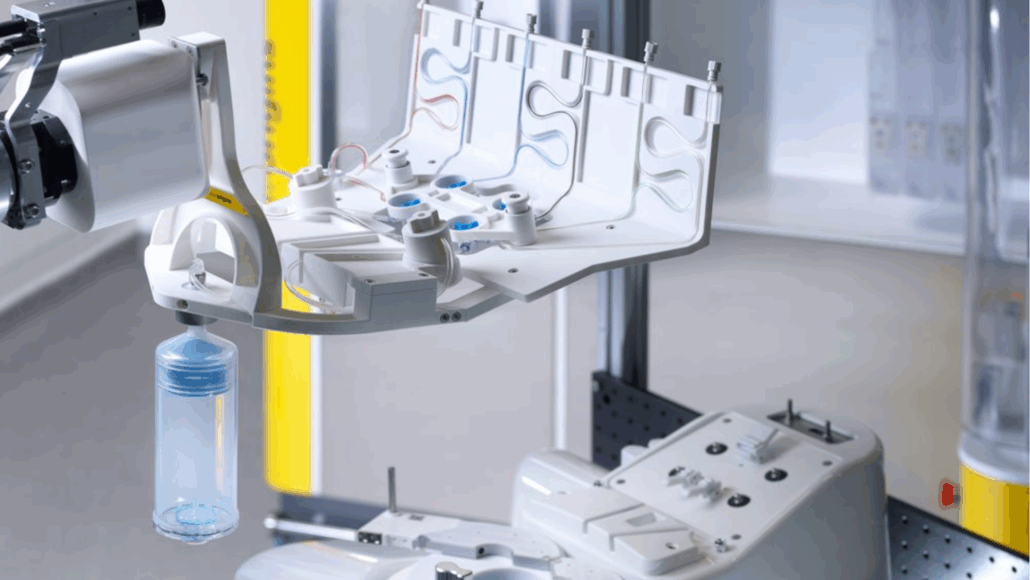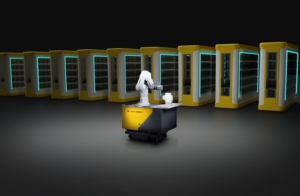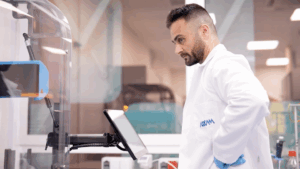
Cellular Origines partners with Johnson & Johnson
British gene and cell therapy manufacturing specialist Cellular Origins Ltd has entered into a collaboration with Johnson & Johnson to develop a scalable, end-to-end automated platform for autologous CAR-T cell manufacturing.
Recent collaborations with Cytiva, and ThermoFisher Scientific demonstrate that Cellular Origins’ platform is able to fully automate cell therapy manufacturing processes using validated, off-the-shelf third-party instruments in combination with mobile robots and Cellular Origins’ proprietary sterile fluid transfer technology. In a next step, Cellular Origins is developing its first end-to-end, GMP-ready system for clinical manufacturing. The new partners did not disclose financial details of their collaboration.
On 17th June, the TTP Company, subsidiary announced an international collaboration with Thermo Fisher Scientific. The collaboration will combine Thermo Fisher’s proven cell culture and processing technology and Cellular Origins’ CGT robotic manufacturing platform, Constellation, to deliver full, robotic, 24/7 production of cell and gene therapies (CGTs) at the industrial scale. Both companies aim to achieve the largest production output of CGTs per square metre of manufacturing space, as well as the lowest labour requirements currently available within a digitally integrated framework.
The primary goal of the collaboration is to support scaling up late-stage trials and commercial production, where automated robotic manufacturing solutions are most needed. They will work towards optimising the best use and layout of hardware in a facility at the most efficient unit operation ratios and for the greatest degree of output, with the smallest degree of risk.
Initially, the two companies completed the integration work on the physical adaption of Thermo Fisher products to Cellular Origins’ robotic platform. Integration of software into the digital layer has also been completed, which is essential for the combined solution to operate effectively. The first customer installation of a robotically operated Constellation platform with the integration of Thermo Scientific™ Heracell™ VIOS™ AxD CO2 incubator technology has already been completed at the Digital and Automation Testbeds in the Cell and Gene Therapy Catapult’s Stevenage Manufacturing Innovation Centre, Stevenage, UK. Extensive validation and testing will follow.
In January, Cellular Origins entered into a collaboration designed to revolutionize the manufacture of cell therapies. By combining Cytiva’s automated Sefia platform with Cellular Origin’s automated robotic platform, Constellation, CGT manufacturers will be able to scale up production to industrial levels without changing the process used during discovery phases or clinical trials.
The two systems will interface seamlessly, providing complete digital interconnection, including quality control systems, fully remote digital controls, and analytics. Removing the need for manual intervention between and within CGT manufacturing steps will help drive new standards of automation and manufacturing productivities.
Currently, 47% of referred patients get access to CAR-T therapies1. The personalized nature of CAR-T therapies and their clinical effectiveness have made them a game-changer for patients. However, current manufacturing practices heavily depend on manual labor, adding to the complexity and variability of the processes. Additionally, limited manufacturing capacity, significant risk of batch failures, and the expected increase of regulatory approvals for wider indications will make it more challenging for drug developers to satisfy growing patient demand.
Cytiva and Cellular Origins recognize that a modular robotic approach will help manufacturers scale from thousands to hundreds of thousands of CGT doses per year. The combined solution will seamlessly integrate the two systems into existing customer workflows enabling customers to manufacture commercially approved and late-stage CGT products 24/7 without changing systems or redesigning approved processes. This collaboration is a continued investment in optimization with the benefits including manufacturing space efficiency, lower labor requirements, and a reduction in the overall cost of CGTs, leading to eliminating or reducing some of the major barriers to access.
This exclusive work is underway, and the first systems are set for process and biological testing in early 2025. GMP systems are expected to be available by the end of 2025 for clinical use.


 Tetraneuron SL - Álvaro García
Tetraneuron SL - Álvaro García Cellular Origins Ltd
Cellular Origins Ltd Axxam S.p.A
Axxam S.p.A